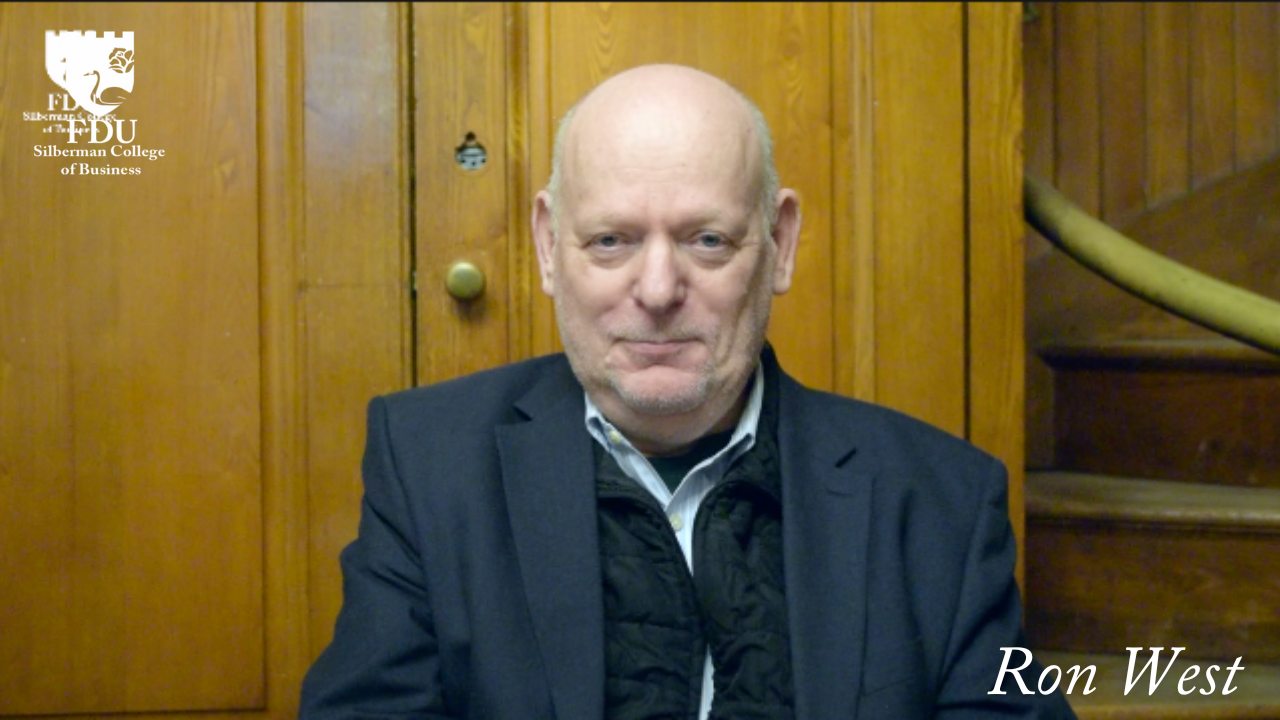Taxation MS

100% remote – delivered synchronously online via Zoom
Fairleigh Dickinson University (FDU) takes pride in having one of the oldest Masters of Science in Taxation (MST) in the state. The MST offered through the Silberman College of Business is designed to meet the growing educational and training needs of area professionals.
Silberman College of Business is fully accredited by AACSB International. This prestigious seal of academic approval is attained by only 5% of all business schools globally.
Ten great reasons to join this program
- 100% remote – delivered online synchronously on Zoom – convenient and accessible to working professionals.
- Affordable – the degree can be earned for approximately $30,000 in tuition.
- Designed to meet the educational and training needs of tax professionals.
- Provides both practical knowledge and technical expertise.
- Benefits both entry-level and experienced professionals. Every student is assigned a free RIA Checkpoint account while in the program.
- No GMAT required.
- Faculty have outstanding academic credentials and strong professional backgrounds.
- No classes during the peak of tax season. Classes are held during the fall, spring, and summer semesters. Classes are normally held in the evenings and occasionally on Saturdays.
- Important electives such as ASC 740, International Tax, S Corp, Financial Products, and others.
- Graduates employed at the Big 4, mid-sized regional firms, small firms, IRS, and corporate tax departments.
To learn more, contact the program director, Professor Ron West.
Specialized focus on taxation
The MS in Taxation program is highly focused and practice-oriented. In scope, it is much more specific than the traditional course of study pursued in an MBA program with a concentration in tax. The MST is dedicated exclusively to the study of taxation.
The program was designed to provide you with both the practical knowledge and technical expertise needed to succeed as a tax professional. The program is ideal for practicing accountants and attorneys, financial planners, recent accounting graduates, and non-accountants wishing to enter the field of taxation. Both entry-level and experienced professionals will benefit from the program.
Emphasis is placed on technical competence in practical applications of current tax law as well as research and planning. Students in the program are exposed to all areas of taxation, including partnerships, corporate, international, trusts, compensation, and estate taxation. Courses not only cover the basics of taxation, but also advanced subject matter and procedural areas of tax law.
See updates from the Department of Accounting, Taxation, and Law: Newsletter (PDF).

-
There are many pathways to admission. Please refer to the Admissions Requirements for further details.
-
Starting in fall 2020, MS in Taxation classes are being offered in a remote format and delivered online. Typically evening classes start at 6 PM. Students will not be required to come to campus, but will need internet access to log into class sessions.
For students needing to complete pre-requisite classes, such classes may be taken either online or in-person at either our Florham Campus in Madison, NJ, or at the Metro Campus in Hackensack, NJ. Alternatively, and with prior Department permission, pre-requisite classes may be taken at other AACSB institutions with an earned grade of B or better.
To accommodate the busy schedule of working professionals, classes are offered on weekday evenings, occasionally on Saturdays, and during summers. Classes are generally not scheduled during the peak of tax season.
-
Yes. The cycle of classes typically begins in the fall semester, but you can enter the program at any time, subject to class scheduling. You may take courses at the pace that suits your work-life demands – as many as three classes or as few as one class per semester or even skipping a semester on occasion. All course work (including pre-requisites) must be completed within seven years.
-
Credits in the MS in Taxation program may qualify towards the 150-semester hours of education requirements for obtaining the CPA certification. Details on what will qualify may vary from state to state according to the rules of each state accounting board.
-
Current students and alumni of the program may take courses to enhance their expertise in specific areas or to meet Continuing Professional Education (CPE) requirements. CPE credits for university and college courses are set forth by the New Jersey State Board of Accountancy in the Law and Public Safety Chapter of the NJ Administrative Code under sections 13:29-6.5(a)(2) and 13:29-6.8(a).
Degree Requirements
The MS in Taxation degree is obtained by completing 30 credits in required and elective courses. Additional prerequisite courses, described below, may be required for those students not meeting the appropriate undergraduate requirements.
The seven core courses (21 credits) are required of all students. The remaining courses (9 credits) may be selected from electives. Subject to prerequisites, there is no set order in which the courses have to be taken.
To graduate, you must maintain a cumulative grade point average (GPA) of 3.0 or better.
Prerequisite Courses
Several of the five prerequisite courses, including Individual Taxation (ACCT6605 or ACCT4267), must be completed before starting the required coursework in the MS in Taxation. CPAs and accounting majors are typically able to waive four of the five prerequisite courses based on prior coursework. The fifth course, Entity Taxation (ACCT6606), may be taken concurrently with MS in Taxation courses and should be taken as early as possible since this class is a specific prerequisite for several of the MS in Taxation classes.
The five prerequisite courses are:
- Financial Accounting – 3 credits: ACCT 2021, ACCT 6400, or course equivalent
- Individual Taxation – 3 credits: ACCT6605, ACCT4267, or course equivalent
- Entity Taxation – 3 credits: ACCT6606 or course equivalent
- Business Law – 3 credits: LAW6657 or course equivalent
- Finance – 3 credits: FIN3250, FIN3310, FIN 6020, FIN 6400, or course equivalent
A prerequisite course may be waived if you have previously completed the course at FDU (or an equivalent course elsewhere) within the prior five years with a grade of B or better. Waiver of courses is determined based on the review of the department chair.
Required courses (21 Credits)
- TAX6621 Advanced Federal Tax I: Individual Income Taxation (Prerequisite: ACCT6605 or ACCT4267)
- TAX6622 Advanced Corporate Tax I (Prerequisite: ACCT6606)
- TAX6670 Tax Accounting (Prerequisite: ACCT6605 or ACCT4267)
- TAX7724 Tax Practice & Procedure I (Prerequisite: ACCT6605 or ACCT4267)
- TAX7727 Advanced Federal Tax II: Property Transactions (Prerequisite: ACCT6605 or ACCT4267)
- TAX7728 Partnerships (Prerequisite: ACCT6606, TAX6621 and TAX7727)
- TAX6850 Tax Research Project (Prerequisite: TAX6621, TAX6622 and TAX7724)
Elective courses (9 credits)
The remaining three courses (9 credits) may be selected from the following list of electives. Students do not have to complete the required courses before taking electives. Because electives are not generally offered as often as the required courses, students interested in specific electives may wish to sign up for the class when given.
- TAX6625 Estate & Gift Taxation
- TAX7705 U.S. International Corporate Taxation
- TAX7725 Advanced Corporate Tax II (Prerequisite: TAX6622)
- TAX7730 Income Taxation of Estates & Trusts
- TAX7750 State & Local Taxation: Corporate & Individual Taxation
- TAX7752 State & Local Taxation: Sales, Use & Property Taxes
- TAX8840 Selected Studies: Taxation of S Corporations (Prerequisite: ACCT6606 or TAX6622)
- TAX8860 Accounting for Income Taxes: ASC 740 (FAS109)
MS in Taxation program learning goals
Upon completion of this program, you will be able to:
- Analyze tax issues for individuals and various domestic or international business entities. Having studied the conceptual and analytical framework, including real life applications, graduates will be able to propose solutions to tax problems. (Critical Thinking)
- Analyze and propose effective solutions to ethical problems in tax practice. (Ethical Awareness)
- Perform research in professional tax data bases. Graduates will be able to produce reports detailing the result of their research in a clear, concise and effective manner. (Information Quality)
- Produce effective collaboration, leadership, negotiation and communication skills needed for effective tax practice. (Interaction)
- Evaluate and analyze tax legislation, statutes, court cases, regulations and IRS pronouncements. Graduates will be able to judge tax policy issues. (Perspective)
Teaching opportunities in taxation
The MS in Taxation program at FDU is continually seeking qualified candidates interested in teaching various tax courses.
We are always interested in pre-qualifying candidates who can be added to our pool of potential adjunct faculty. We are particularly interested in candidates willing to teach classes held on Saturdays (mornings or afternoons). Qualified candidates should ideally have a JD/CPA degree with appropriate tax experience. An LLM degree in taxation is a plus.
Interested candidates should email their resume to Professor Ron West, Program Director.
Learn More
Contact the SCB Graduate Advising offices for more information.
 Silberman College of Business is accredited by AACSB International.
Silberman College of Business is accredited by AACSB International.